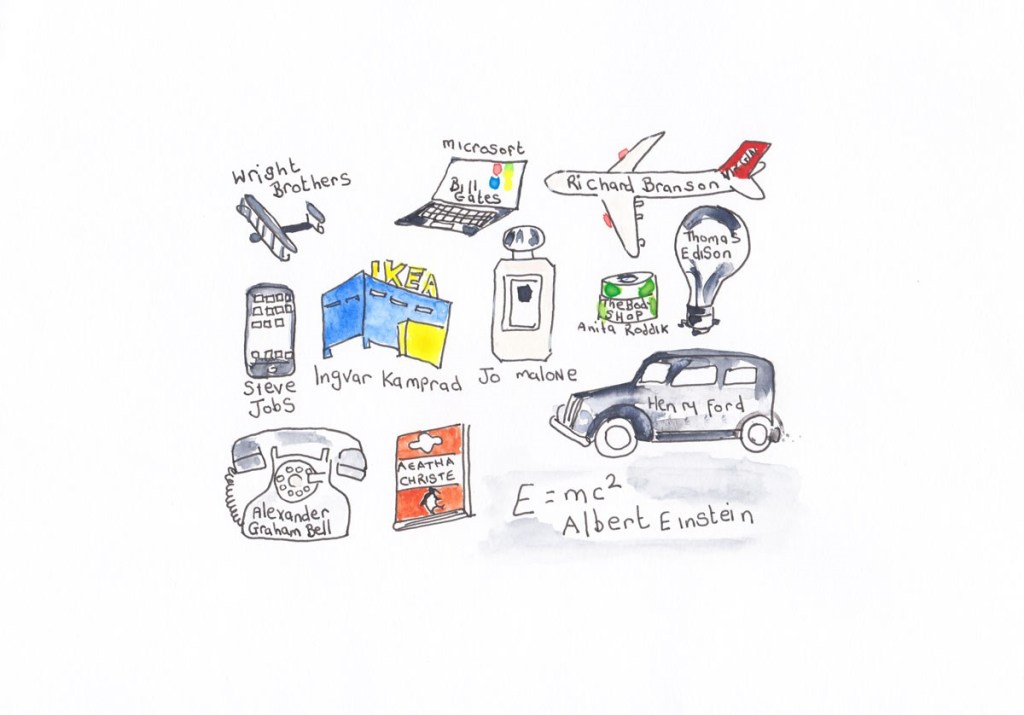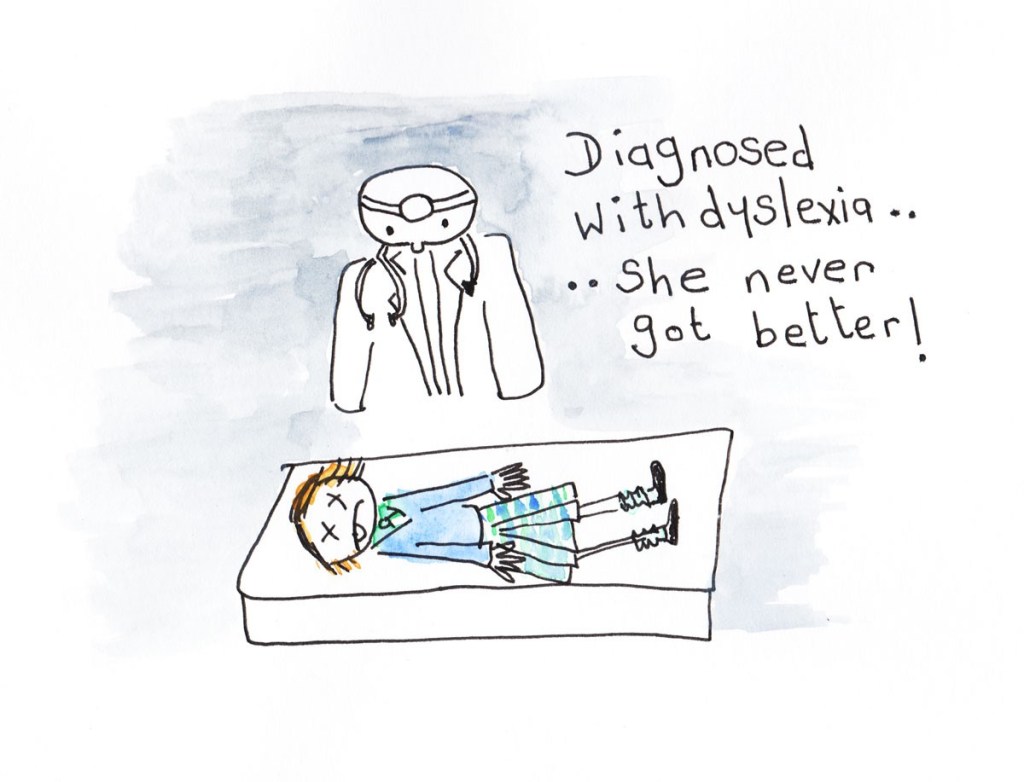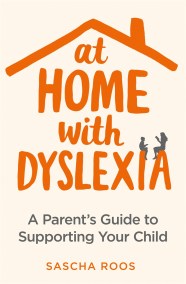How to Change the Language Around Dyslexia

Dyslexia in the modern world
There is a sea change in terms of attitudes to dyslexia, as shown by the growing numbers of famous and successful dyslexics speaking out about their own dyslexia. People succeed because of their dyslexia; not despite it. We have to change the language around dyslexia. It’s not something to suffer with or to overcome; it is part of who you are and your way of processing the world.
The world would be a very different and less interesting place without dyslexics. This article emphasises the important message that we need to change the language around dyslexia, to own it and respect it as the advantage it can be.
Changing the language around dyslexia
Any notion of a disability and the language usually associated with such a label has to be ruled out. We must change the language around dyslexia so we can fully support a child with this ‘learning difference’. We need to dispel negative language – for example, ‘despite suffering from dyslexia they managed to overcome their disability.’ Although it is great to hear about famous dyslexics in the media, it is infuriating for the dyslexic individual to observe these celebratory stories couched in negative language and hear how the successful dyslexic achieved ‘despite this terrible affliction’ and ‘against all odds!’.
Well-meaning comments such as ‘it must be a terrible struggle’ also do not help matters. With such debilitating language around this learning difference, it is no wonder that dyslexics have to put up with sympathy and, worse, patronizing pity. How frustrating for an intelligent and ambitious individual.
The dyslexic individual doesn’t want pity or sympathy; they want to be respected and celebrated for their different way of processing and seeing the world. It is part of who they are and how they think. You need to be on board with that to educate others about changing the language from ‘disability’ to a different ability, a learning difference rather than ‘difficulty’. By transforming the dominant notions of dyslexia, we can boost the confidence of the dyslexic child, raise expectations and nurture self-belief.
You can help your dyslexic child to see the benefits of different ways of thinking and processing the world around them. Understanding, accepting and celebrating these differences will help your dyslexic child to see their dyslexia in a positive light. It may well be you who needs more convincing than your talented dyslexic child. Either way, give them space and encouragement to ‘own’ theirs dyslexia; after all, it belongs to them, it is part of how they sees the world.
Dyslexia and success
Look at the huge number of people with dyslexia who have been innovators in their chosen field, and have proven themselves to be at the top of their game, from Leonardo da Vinci to Picasso, from Mozart to John Lennon, from Isaac Newton to Stephen Hawking, from Walt Disney to Steven Spielberg. ‘Don’t ever let people put you down for being dyslexic. Being dyslexic is actually an advantage, and has helped me greatly in life.’ — Richard Branson in a letter to a 9-year-old girl with dyslexia

Young people celebrating their dyslexia
‘When I speak openly about dyslexia, I connect more with people.’ — Sean, 13
‘I can think a bit differently to other people. Sometimes everyone has the same ideas but you may have a more abstract view. You can come up with a different idea.’ — Molly, 18
‘I feel being dyslexic has made me understand people more. It may sound silly, but I’ll never judge someone if they don’t get something straight away. And I help people who struggle because I know what it is like. It’s made me a creative thinker. It’s made me more ambitious to do well and prove people, who have the wrong idea of dyslexia, wrong, too.’ — Emma, 16
‘I think I’m a confident person because of my dyslexia. When I wasn’t doing well at spelling and reading, I was excelling at keeping up with the class in other aspects. I was really intelligent when it came to certain things and it showed to me that I am so capable. I do think dyslexia has given me skills that have benefited me in every aspect. I like my dyslexia.’ — Katie, 19

About the author
Sascha Roos is a dyslexia specialist and author of At Home With Dyslexia: A Parent’s Guide to Supporting Your Child. Dyslexia is considered genetic in origin, so it was important for Sascha that her guide would be dyslexia-friendly and appeal to the parent who may also be dyslexic. Along with visually appealing short chapters, bullet points and plenty of spacing, Danielle Sheehy’s pen and ink drawings capture the challenges but also the positives of dyslexia and speak directly to the dyslexic parent and child. More than sixty children and parents also give their insights and advice in the guide. Many of Sascha’s students, past and present, were keen to share their difficulties and fears but also their strengths and optimism, in the knowledge that their contribution to At Home With Dyslexia would be helping other people.
Recommended by Toe by Toe
'This is by far the best resource I have found as the parent of two dyslexic children. Out of all the documentaries, websites, seminars, podcasts and of course other books I have studied trying to educate myself on how best to support my little ladies, this provides the most relevant and necessary information in the clearest format. It has been great sharing snippets of the book with the girls, especially the view points of other people with dyslexia. Thank you for a great book!' - Amazon review
This book will empower parents by giving them the tools and strategies to deal with dyslexia, making them confident and knowledgeable in the process.
It offers:
- a guidebook that is visually appealing, including bullet points, illustrations and short chapters, making it an easy to follow reference book for the busy (and often dyslexic) parent;
- practical and emotional support at home from primary to secondary school years, as well as how to deal with school and the education system;
- chapters that can be dipped into for useful day to day advice and tools to help at home , and for overall encouragement and reassurance;
- parents and children sharing their personal experiences and advice in their personal accounts - the challenges of dyslexia, possible solutions and successes are openly discussed and woven throughout the chapters, giving the guide an authentic voice.
Central to this guide is language of acceptance and celebration, emphasising a learning 'difference' rather than a 'disability', and a genuine encouragement of dyslexic abilities and strengths.



